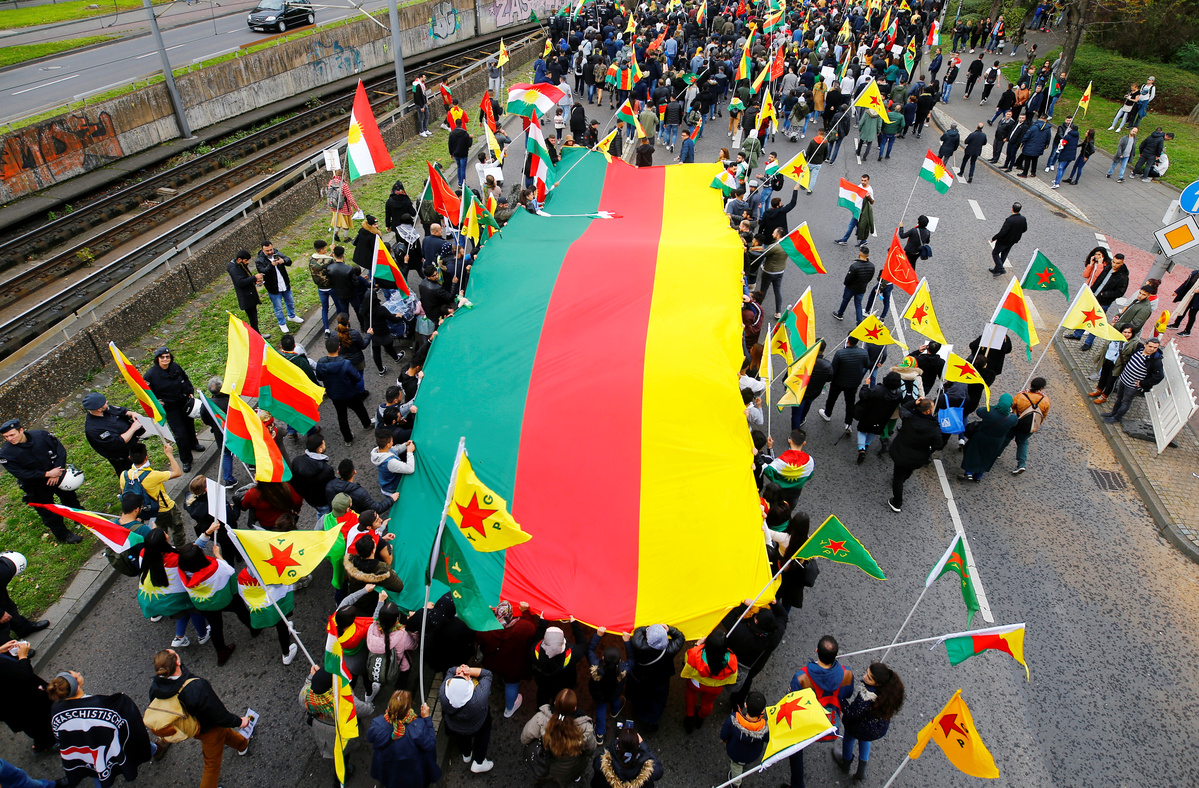
The sudden yet not unexpected Turkish military intervention in Syria has finally triggered dismay among world public opinion. What has changed compared to the past?
The latest encroachment by the Turkish army into Kurdish territory (the third in three years, across Iraq and Syria) has caught the eye of the international media and triggered dismay among world public opinion, which has unanimously and proactively condemned the sudden yet not unexpected military action ordered by President Recep Tayyip Erdogan.
How come? What’s changed compared to the past? These are just a few of the questions we’ll try to answer scientifically, on the mid-October invasion at the Turkish-Syrian border.
- The Kurdish narrative, even beyond its actual merits, has finally breeched the hearts of western public opinion: the women in combat gear, lugging a machine gun, without a veil and in the front line, have confirmed what we already knew about a community that is rapidly attempting to join the Third Millennium after being stuck in the 19th century for too long. Otherwise there would be no justifications to our rebellion against the violence perpetrated against the Kurds and not about the thousand casualties reported in recent weeks among the Misrata militias caused by General Haftar’s troops, after these too had made the news two years earlier for having fought and defeated IS in Libya. But they haven’t warranted a mention…
- Why is the invasion happening right now? Last January John Bolton (a member of this magazine’s Scientific Committee), before being fired by Trump, had confirmed the President’s intention of withdrawing US troops from Syria, but “not before having ensured the definite defeat of IS and the protection of the Kurds”. In August, the Turks and Americans reached an agreement along with the Democratic People’s Party (DYP) and its armed contingent (YPG) to set up a 30 kilometre buffer zone that could be repopulated with Syrian refugees, which the Turkish authorities openly admit they can no longer handle. We must here debunk a lie that is often reported in the western press: the Turks have not accepted the refugees because we’ve paid them to do so. Against a European contribution of 6 billion euros, the last instalment of which has yet to be paid out, the Turkish government has so far allocated 36 billion to organise the most colossal welcome operation ever in history, in such a short time, thus showing a capacity to receive and integrate that is out of the ordinary, in spite of all the tensions that this entails. And it has built the best equipped refugee camps in Europe, something I have witnessed personally.
- Should we worry about a revival of terrorism? The Kurds have often stated that they have a problem detaining the two thousand IS fighters, given the precarious conditions in which their communities find themselves, and have thus suggested that western states might take back their own nationals and place them in their own jails, a proposal that has been systematically dismissed by our governments, only to show concern at the idea of the return of foreign fighters as soon as any terrorist action takes place. The August agreement also called for the gradual dismantling of the Kurdish anti-Isis fortifications to avoid their being used improperly in the future.
This programme, which was taking place in peace and under the supervision of American troops, was undermined by the usual Donald Trump tweet, that essentially speeded up the withdrawal, leaving the plan incomplete. The sultan, who is on his last legs anyway, couldn’t believe his luck at the chance of getting the Turkish people back on a nationalist agenda, thus revising his flagging poll numbers and reversing what looked like an unstoppable decline. He hadn’t however factored in an unprecedented level of international isolation that risks souring relations with international investors, so essential to revive a Turkish economy that is heavily dependent on external resources.
@GiuScognamiglio
This article is the front page of the new November/December issue of eastwest.
You can buy the magazine at newsstand or subscribe.
The sudden yet not unexpected Turkish military intervention in Syria has finally triggered dismay among world public opinion. What has changed compared to the past?





